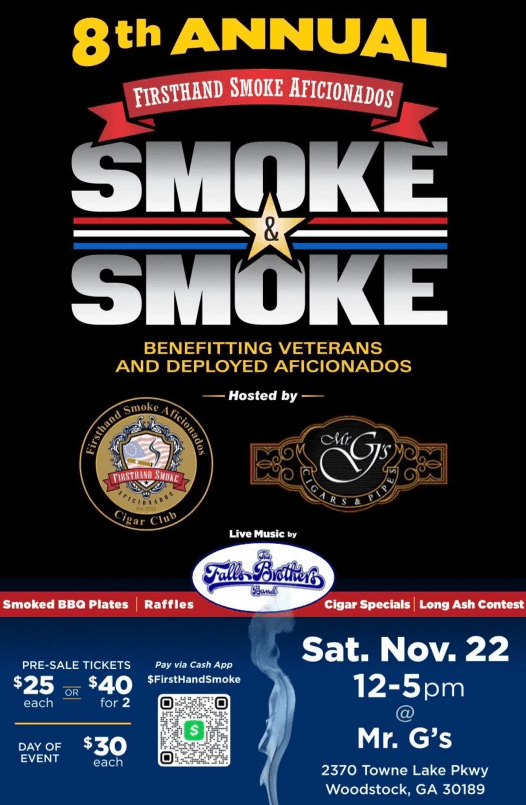The history of tobacco in Native American culture is rich and multifaceted, intertwining with the very fabric of indigenous life long before the arrival of Europeans.
Used for a variety of purposes, from sacred rituals and medicinal practices to social and diplomatic engagements, tobacco holds a profound significance in Native American traditions.
In this article, we’ll look into the origins, cultural practices, and rituals surrounding Native American tobacco history and use, uncovering how this plant has been revered and integrated into the daily lives and spiritual practices of various tribes.
Whether used as a means of communication with the spiritual world or as a tool for forging community bonds, the role of tobacco in Native American history offers deep insights into its enduring legacy and cultural importance.
From Rituals to Revolution: Exploring the Rich Native American Tobacco History
The Sacred Plant: Understanding the Significance of Tobacco in Native American Culture

Tobacco holds a sacred place in Native American culture, deeply intertwined with their history, traditions, and rituals. Understanding the significance of tobacco in Native American culture offers a glimpse into the profound connection between the people and the land.
Native American tobacco history is rich and multifaceted, dating back thousands of years. Tobacco holds a central role in various ceremonies, serving as a medium to communicate with the spiritual world. It is not just a plant but a sacred messenger, carrying prayers and intentions to the Creator.
In Native American culture, tobacco is considered a gift from the Great Spirit. It is used to show respect, express gratitude, and establish connections with the spiritual realm. The act of offering tobacco is a solemn gesture, symbolizing sincerity and a pure heart.
Tobacco is not merely consumed for personal pleasure but shared in communal settings as a symbol of unity and harmony. It is often used in social gatherings, healing ceremonies, and rites of passage, marking important milestones in the lives of individuals and the community.
The origins of Native American tobacco cultivation can be traced back to ancient agricultural practices, where tobacco was grown with reverence and care. The plant was believed to possess healing properties, offering protection and guidance to those who used it with reverence.
Throughout history, tobacco has been a unifying force among Native American tribes, fostering friendships, alliances, and peace agreements. Its smoke is believed to carry prayers to the heavens, acting as a bridge between the earthly realm and the spiritual world.
Origins of Native American Tobacco: Tracing Back Thousands of Years
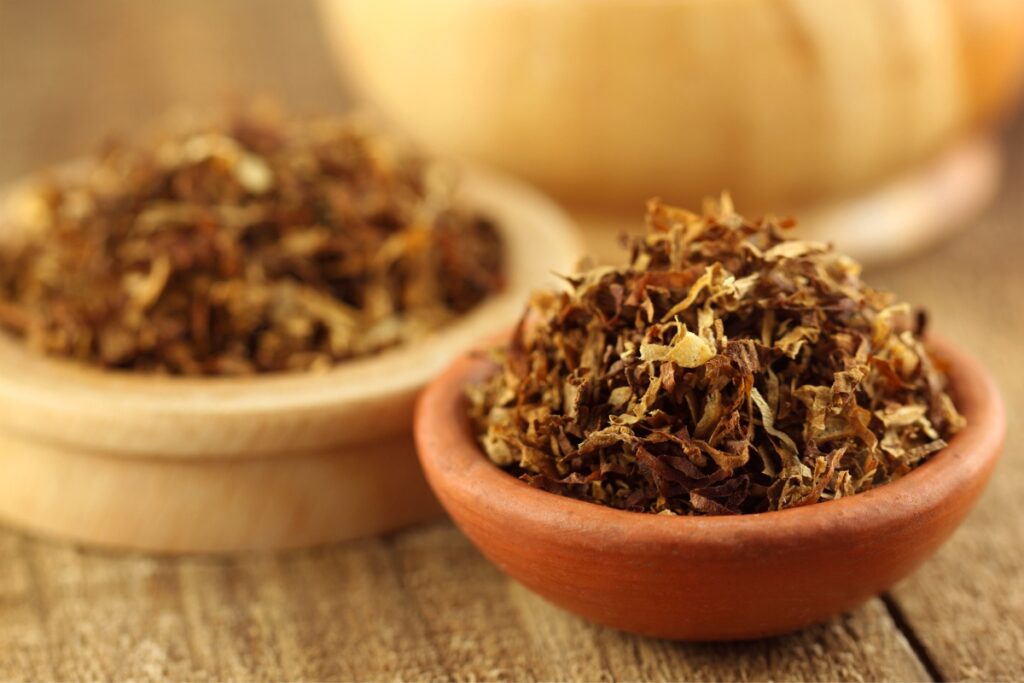
Native American tobacco history spans thousands of years, deeply intertwined with the culture and rituals of indigenous communities across the Americas. The origins of native American tobacco can be traced back to ancient times, well before the arrival of Europeans on the continent.
Tobacco holds significant spiritual and cultural importance for many Native American tribes, playing a central role in ceremonies, rituals, and social gatherings. The cultivation and use of tobacco were deeply ingrained in the daily lives of indigenous peoples, forming a vital part of their traditions and customs.
The practice of growing and harvesting tobacco was passed down through generations, with each tribe developing its unique methods and rituals associated with the plant. Tobacco was often used in sacred ceremonies, offering prayers, and connecting with the spiritual world.
For many Native American tribes, tobacco was considered a sacred gift from the Creator, with each plant embodying a connection to the natural world and the spirits. The smoking of tobacco in pipes held deep symbolic meaning, serving as a way to communicate with ancestors and seek guidance from the spiritual realm.
The complex history of native American tobacco reflects the deep reverence and respect that indigenous peoples hold for the plant. Its cultivation and use were not just practical but formed a crucial part of the cultural identity and spiritual practices of many tribes.
Today, the legacy of native American tobacco continues to endure, with efforts to preserve traditional cultivation methods and rituals. Understanding the origins of native American tobacco is essential in appreciating the rich cultural tapestry of indigenous communities and their deep-rooted connection to the land and spiritual world.
Cultivation Practices: How Indigenous Peoples Nurtured Tobacco Plants
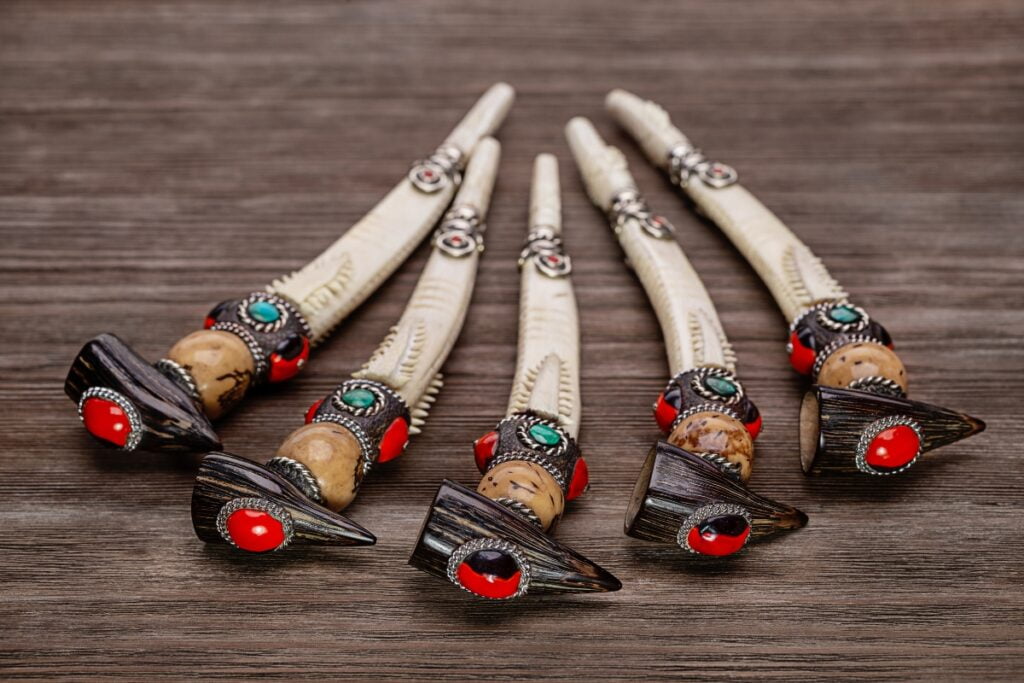
Native Americans cultivated tobacco using sustainable agricultural methods that respected the land and its resources. They understood the importance of maintaining a harmonious relationship with nature and practiced crop rotation to preserve soil fertility.
These communities believed that tobacco had its own spirit or essence. They would offer prayers before planting, asking for guidance from the spirits to ensure a bountiful harvest. Throughout the growing season, they would tend to their crops with care—watering them, removing weeds, and protecting them from pests.
When it came time for harvesting, it was done with reverence and gratitude. The leaves were carefully picked by hand and then dried and cured to preserve their flavor and potency. This meticulous process ensured that the tobacco was of the highest quality, suitable for both ceremonial and everyday use.
Spiritual Connections: Tobacco as a Bridge Between the Earthly and Divine Realms
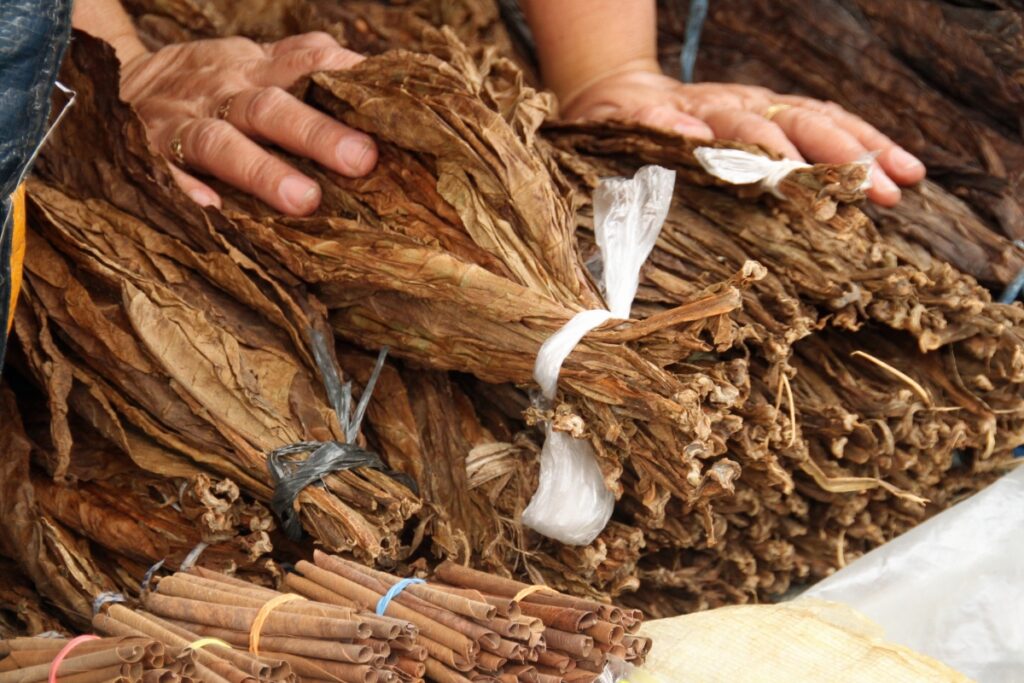
Leveraging the rich history and significance of Native American tobacco, we delve into its profound role in spiritual connections, serving as a bridge between the earthly and divine realms.
Throughout history, tobacco has held a sacred place in the spiritual practices of many cultures, serving as a bridge between the earthly and divine realms. Indigenous peoples, particularly in the Americas, have long revered tobacco as a powerful spiritual tool.
It is used in rituals, ceremonies, and prayers to communicate with the spiritual world, honor ancestors, and seek guidance from higher powers.
Tobacco is often considered a sacred plant with the ability to carry prayers and intentions to the heavens. When smoked or offered in ceremonies, it is believed to open channels of communication between humans and the divine, allowing for a deeper connection with spiritual forces.
The smoke is seen as a medium that transports thoughts and messages to the spirit world, facilitating a reciprocal exchange of energy and wisdom.
In many traditions, tobacco is not merely a recreational substance but a powerful ally in spiritual growth and healing. It is used with respect and intention, often accompanied by rituals that honor its sacred nature.
Ceremonial Use: Unpacking the Role of Tobacco in Native American Rituals
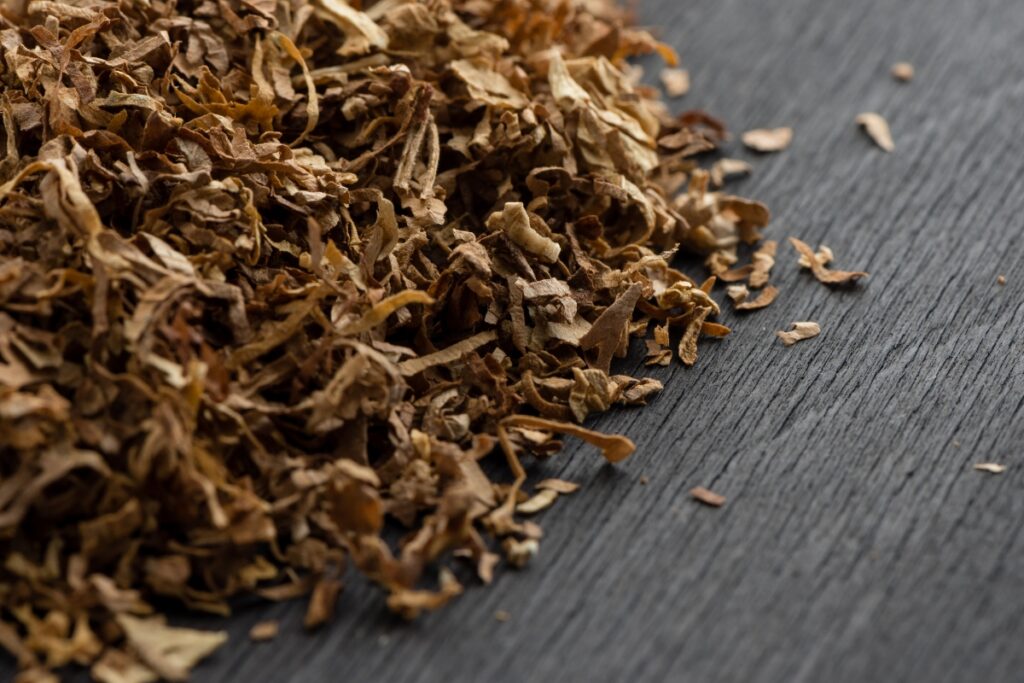
Tobacco holds a profound significance in Native American rituals, embodying a sacred substance that connects individuals with the spiritual world. For many Native American tribes, tobacco is more than a plant; it is a conduit for prayer, gratitude, and communion with the divine.
Its ceremonial use is deeply rooted in tradition and spirituality, underscoring its integral role in various rituals and practices.
In many Native American cultures, tobacco is used in ceremonies to honor the Creator, ancestors, and spirits. It is often offered as a gift, symbolizing respect and reverence.
During rituals, the smoke from burning tobacco is believed to carry prayers to the heavens, creating a bridge between the physical and spiritual realms. This act of offering tobacco is seen as a gesture of sincerity and devotion, facilitating a deeper spiritual connection.
Tobacco is also used in purification rituals, where it is burned to cleanse individuals and sacred spaces. This practice is thought to dispel negative energies and invite positive spiritual influences. In healing ceremonies, tobacco plays a crucial role, as its smoke is used to invoke the aid of spiritual entities in restoring balance and health.
The ceremonial use of tobacco varies among tribes, each with its unique rituals and customs. However, the underlying theme remains consistent: tobacco is a sacred gift from the Earth, used to forge and maintain a profound connection with the spiritual world. Through these ceremonies, Native Americans honor their heritage, express gratitude, and seek harmony with the universe.
Tobacco in Treaties and Agreements: Symbolism of Peace and Unity

Tobacco has long been a symbol of peace and unity, playing a significant role in treaties and agreements among Native American tribes and between Native Americans and European settlers. Its use in such contexts underscores its importance as a tool for fostering mutual respect, understanding, and harmony.
When treaties were forged, the sharing of a ceremonial pipe, often called a peace pipe or calumet, was a common practice. This act of smoking tobacco together signified a commitment to peace and the solemnity of the agreement being made.
The smoke from the pipe was believed to carry the intentions and promises of the parties involved to the spiritual realm, reinforcing the sacred nature of the treaty. By participating in this ritual, all parties acknowledged the presence of higher powers and their role in overseeing and blessing the agreement.
The ceremonial use of tobacco in these contexts was more than symbolic; it was a binding gesture of goodwill and unity. It marked the beginning of new relationships based on trust and mutual respect.
For Native American tribes, the inclusion of tobacco in these significant moments highlighted their deep cultural and spiritual values, emphasizing the importance of maintaining harmony and balance in their interactions with others.
Tobacco’s role in treaties and agreements exemplifies its power as a medium for fostering peace and unity. It served as a tangible reminder of the sacred commitments made, encouraging all parties to uphold their promises and work together for the greater good. Through the ritualistic sharing of tobacco, diverse groups found common ground, symbolizing their shared hopes for a peaceful and cooperative future.
Everyday Life: How Tobacco Was Integrated into Daily Practices and Traditions
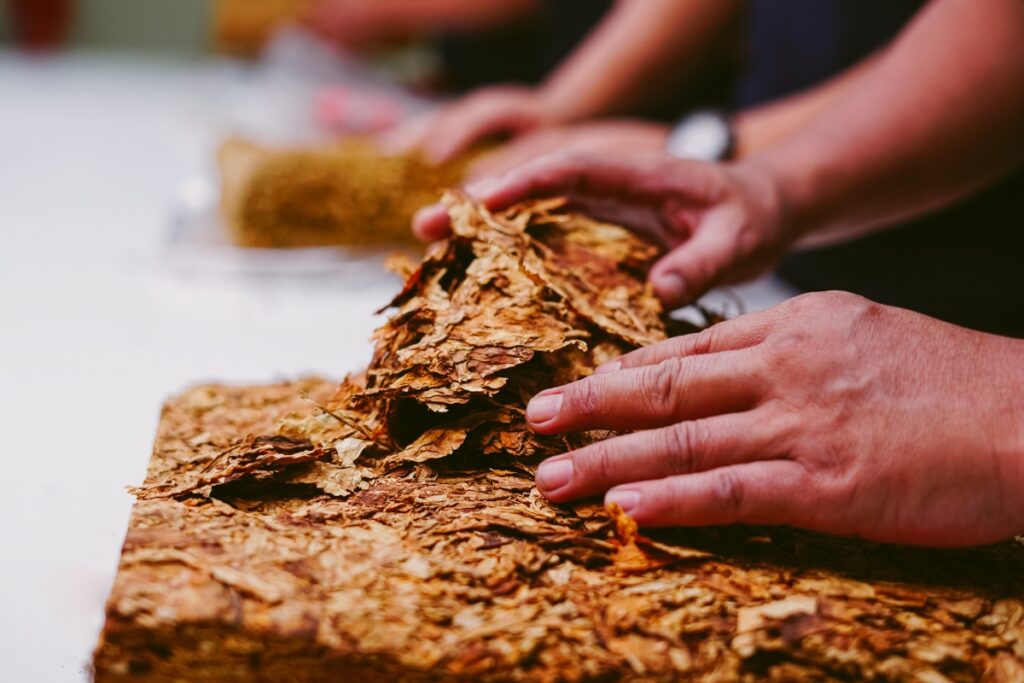
For many Native American tribes, tobacco was a staple in social and communal interactions. It was often shared during gatherings and meetings, symbolizing hospitality and friendship.
The act of sharing tobacco created bonds and fostered a sense of community, reinforcing social ties and mutual respect among tribe members. It was common for elders to offer tobacco to guests as a sign of welcome and honor.
Tobacco also held a place in personal daily routines. It was used for medicinal purposes, believed to possess healing properties that could treat various ailments. People would chew or smoke tobacco to alleviate pain, treat respiratory issues, and promote overall well-being. Additionally, it was used as a natural insect repellent and in poultices for wound care.
Moreover, tobacco was a means of personal reflection and connection with the natural world. Individuals would offer tobacco to the earth as a sign of gratitude and respect, acknowledging the interconnectedness of all living things. This daily practice reinforced a harmonious relationship with nature and the spiritual forces that guided their lives.
Through its integration into everyday practices, tobacco became more than a ritualistic substance; it was a vital element of cultural identity and daily life. Its presence in various aspects of life underscored its importance in maintaining social cohesion, health, and a deep spiritual connection with the world.
It’s important to note that these practices were specific to Native American cultures and should not be confused with modern commercial tobacco use.
Tobacco Today: Respecting and Preserving Native American Cultural Heritage
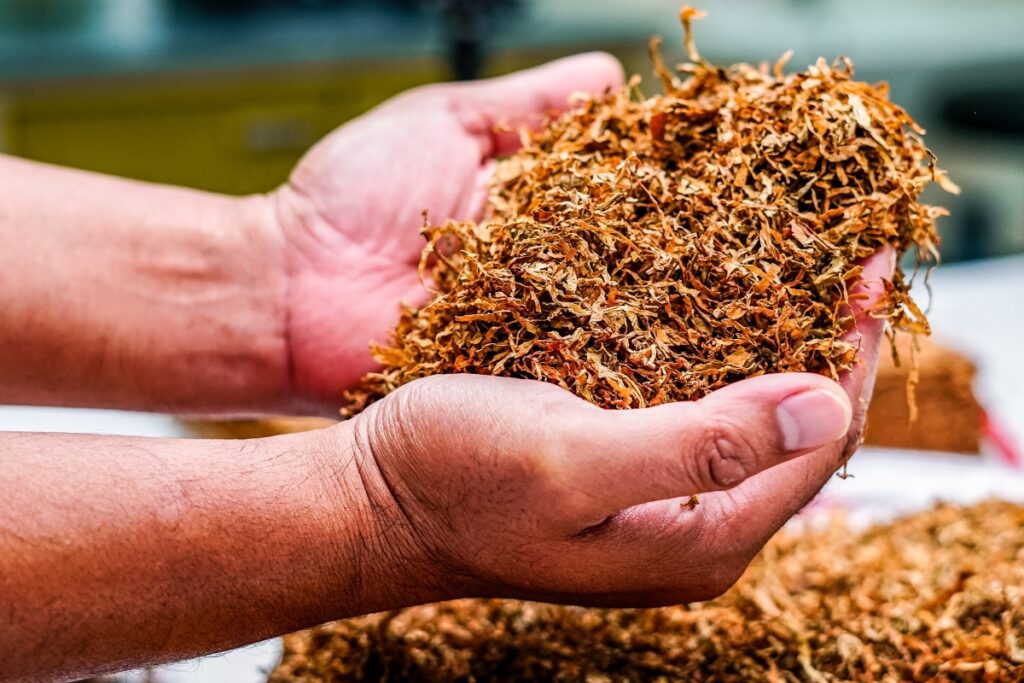
Today, the cultural heritage of tobacco remains a vital and respected aspect of Native American traditions. As modern society progresses, it is crucial to honor and preserve the sacred role tobacco plays in Indigenous cultures. This respect involves understanding the deep spiritual, ceremonial, and social significance of tobacco, differentiating it from its commercial and recreational use.
In contemporary Native American communities, traditional practices involving tobacco continue to thrive. Ceremonial use of tobacco remains a cornerstone in rituals, prayers, and healing ceremonies, maintaining a direct link to ancestral wisdom and spiritual practices.
Elders and cultural leaders play a crucial role in educating younger generations about the sacred uses of tobacco, ensuring the continuity of these ancient traditions.
Efforts to preserve Native American cultural heritage also involve advocating for the protection of sacred tobacco practices from commercial exploitation.
This includes promoting the ethical sourcing and use of tobacco in ways that honor its cultural significance. Community programs and initiatives often focus on cultivating traditional tobacco strains, which hold specific spiritual meanings, rather than commercial varieties.
Moreover, there is a growing recognition of the need to respect Native American sovereignty over their cultural practices. Supporting Native-led organizations and initiatives that aim to preserve and promote the cultural heritage of tobacco is essential. By acknowledging and respecting these traditions, we contribute to the broader movement of honoring and safeguarding Indigenous cultural heritage.
In a world where the misuse of tobacco is prevalent, recognizing and preserving its sacred role in Native American cultures is a vital step towards cultural appreciation and respect. Through education, advocacy, and support, we can help ensure that the profound heritage of tobacco remains a vibrant and respected part of Native American life.
Impact of Colonization: Changes and Challenges in Native American Tobacco Practices
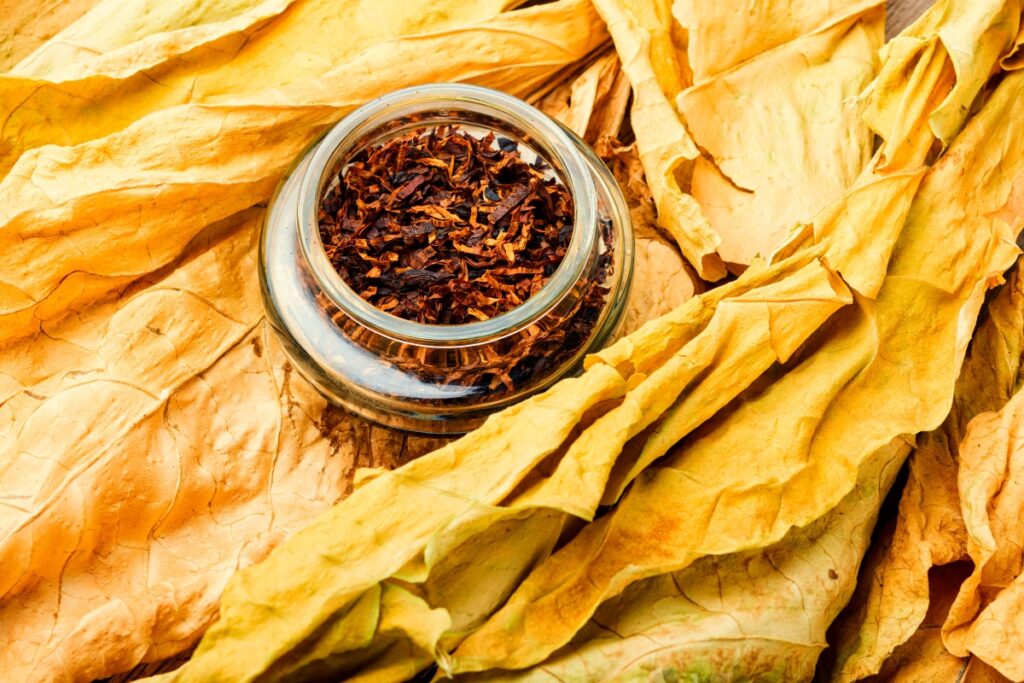
The arrival of European colonizers drastically altered Native American tobacco practices, introducing profound changes and challenges that continue to reverberate today.
Colonization brought about the commercial exploitation of tobacco, which stripped it of its sacred significance and transformed it into a lucrative commodity. This shift undermined the cultural and spiritual practices associated with tobacco among Indigenous peoples.
Colonizers appropriated tobacco, cultivating it on a large scale for profit, and introducing it to Europe and beyond. This commercial exploitation often involved the forced labor of Native Americans and African slaves, further entangling tobacco with the dark history of colonization and oppression. The sacred plant, once a symbol of spiritual connection and community, became a tool for economic gain and exploitation.
The imposition of European customs and laws also disrupted traditional Native American tobacco practices. Many tribes faced restrictions on their cultural and religious practices, including the ceremonial use of tobacco. This suppression led to a loss of traditional knowledge and a weakening of cultural identity among Indigenous peoples.
In contemporary times, Native American communities continue to face challenges in preserving their traditional tobacco practices. The widespread availability of commercial tobacco products, often associated with health issues, contrasts sharply with the sacred use of traditional tobacco.
Efforts to reclaim and revitalize traditional practices involve educating both Indigenous and non-Indigenous people about the cultural significance of tobacco and advocating for the protection of these sacred traditions.
Despite the historical and ongoing challenges posed by colonization, many Native American communities are resiliently working to preserve and revitalize their tobacco practices. By reclaiming their cultural heritage and advocating for their rights, they strive to ensure that the sacred role of tobacco is honored and respected for future generations.
Conclusion: Honoring the Past, Embracing the Present, and Preserving the Future
The history of Native American tobacco is a testament to the deep-rooted spirituality, cultural richness, and respect for nature within indigenous communities. As we honor their past by acknowledging their contributions and resilience, we must also embrace the present by supporting efforts to preserve these traditions.
Delve deeper into the rich history and cultural significance of Native American tobacco with Mr. G’s Cigars. Our carefully curated selection of premium tobacco and cigars pays homage to these ancient traditions, offering you an authentic and respectful smoking experience. Contact us through our website form or call (678) 494-6619 to learn more about our collection as well as the origins, culture, and ritual of tobacco. Let Mr. G’s Cigars be your guide to discovering the deep-rooted heritage of tobacco.





